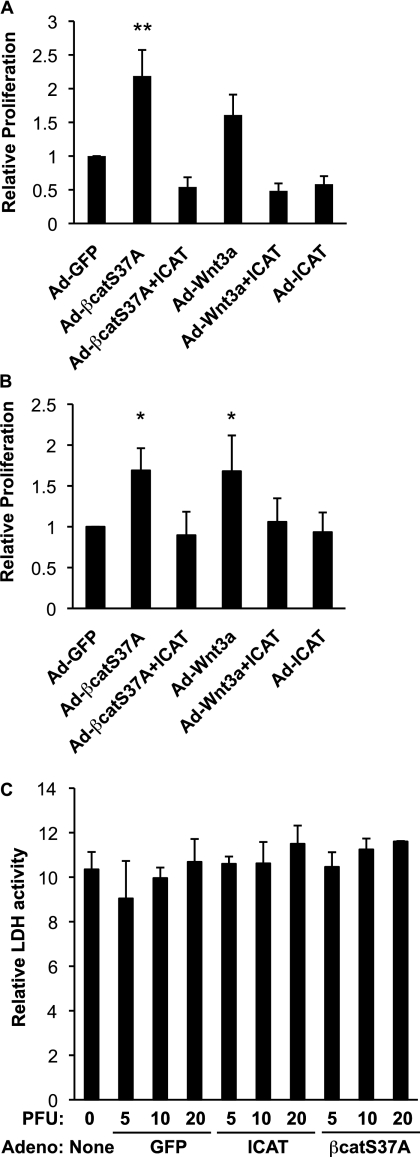Figure 5.
Wnt/β-catenin signaling promotes proliferation and is not required for the survival of normal human lung fibroblasts. (A) Bromodeoxyuridine (BrdU) incorporation assay. Human lung fibroblasts (NL-57) from nondiseased lungs were infected with Ad-GFP, Ad-S37A–β-catenin, Ad-ICAT, and Ad-Wnt3a for 48 hours and then pulse-labeled with BrdU. Results are expressed as mean ± SD relative to control adenovirus from six independent experiments (**P < 0.01). Similar results were observed with NHLFs (Figure E2). (B) Ki67 assay. Human lung fibroblasts (NHLFs) were infected with Ad-GFP, Ad-S37A–β-catenin, Ad-ICAT, and Ad-Wnt3a for 48 hours and processed for immunofluorescence staining with an antibody to Ki67. Results are expressed as mean ± SD relative to control adenovirus from three to five independent experiments (*P < 0.05). (C) Lactate dehydrogenase (LDH) cell viability assay. NHLFs were infected with Ad-GFP, Ad-S37A–β-catenin, and Ad-ICAT for 72 hours, and media was assessed for LDH activity as described in Materials and Methods. Activation of Wnt/β-catenin signaling neither promotes cell death with increasing PFUs of control adenovirus or adenovirus expressing S37A–β-catenin nor is required for cell survival (Ad-ICAT). Results are expressed as mean levels of LDH activity ± SD from at least three independent experiments.

